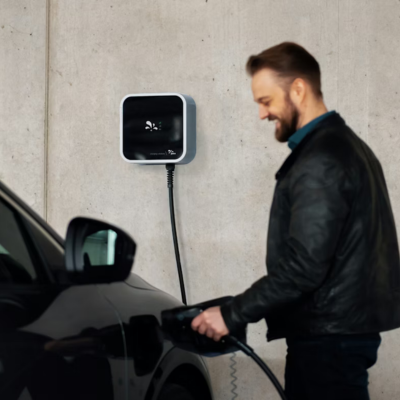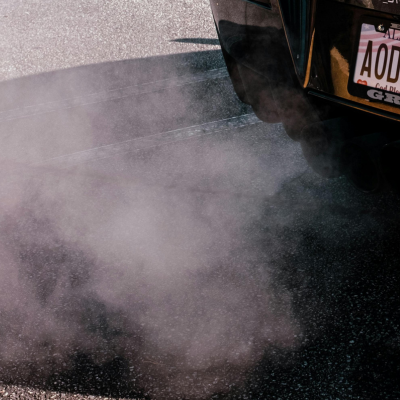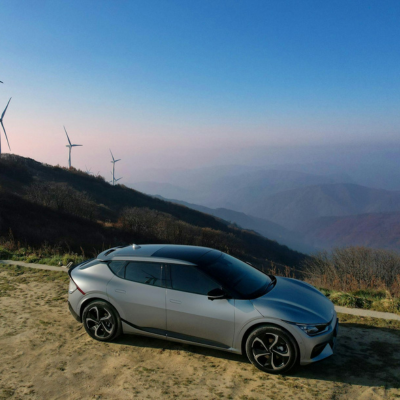MOVING FROM GASOLINE TO ELECTRIC VEHICLES ADVANCES ENVIRONMENTAL JUSTICE AND EQUITY
June 26, 2020

Legislation to require that all new passenger vehicles sold after 2030 be electric instead of gas-powered (“Clean Cars Legislation”), would deliver landmark advances in environmental justice and equity to communities of color in five important areas—health, finances, land values, economic opportunity, and community self-determination.
1. IMPROVED HEALTH
1.2 million people live within 500 feet of a freeway in Southern California alone. Communities of color are much more likely to live very near these freeways and are therefore disproportionately affected by vehicle exhaust coming from cars on freeways and other heavily trafficked roads. Black people are also 75% more likely to live near toxic oil and gas facilities.
Numerous studies endorsed by the USC Environmental Health Centers conclude that babies and children living near busy roads are more likely to suffer from low birth weight, behavioral and learning deficits, and asthma, and that adults living near freeways have higher rates of lung and cardiovascular disease. Another recent study links mothers living closer to major roadways at delivery was to higher odds of offspring having a central nervous system tumor.
Vehicle-related health impacts negatively affect quality of life, life opportunities, and finances of people of color. Children struggling with pollution-induced mental or behavioral deficits or asthma are much more likely to miss and/or fall behind in school. Adults suffering from cardiovascular disease have decreased quality of life and earning potential, and higher medical expenses. Low-income families often have to pay out-of-pocket for a portion of the medical treatment they receive, and take time off from work to take their children to the doctor.
Clean Cars Legislation, by eliminating virtually all gas cars on the road, would help millions of people who live near roadways breathe cleaner air, and avoid the significant health, educational, financial, and quality-of-life losses caused by gas car emissions.
2. SAVINGS ON FUEL, MAINTENANCE AND VEHICLE PRICE
Electricity costs considerably less than gasoline on a per-mile-traveled basis. Lower income households spend almost 9% of their income on gas – twice as much as middle-income households, and thus the fuel savings that come from vehicle electrification would disproportionately benefit lower income persons.
Eleven states provide discounted electricity rates for low-income customers, reducing the price of fueling an electric vehicle (EV) even further. For instance, California utilities offer a 0% to 35% electricity rate discount.
Clean Cars Legislation would dramatically increase the number of electric cars on the road, which would in turn cause large numbers of used electric cars to enter the market. Given that the sticker prices of new electric cars are projected to be the same as those of gas cars as early as 2022, electric cars will soon be more affordable at time of purchase than their gas counterparts, and much less expensive to operate.
Electric vehicles also require less maintenance — they only have 20 moving parts to break down, compared to 2,000 on vehicles with an internal combustion engine, and do not require oil changes or smog checks. A major car repair is the single most common source of financial shock to American households, and people of color and low income people are least able to withstand such shocks. In sum, moving the country from gasoline vehicles to electric ones will improve equity in transportation costs for households that use a car.
3. INCREASED PROPERTY VALUES
Numerous studies have documented that properties abutting freeways have considerably lower property values than properties further away. The air and noise pollution from freeways is considered a primary driver of lower values. Because phasing out of gasoline cars would result in considerable reductions in air and noise pollution, the value of properties near freeways would be likely to go up as a result of Clean Cars Legislation, thereby economically benefiting those homeowners.
4. MORE ECONOMIC OPPORTUNITY
Few new gas stations are being built today, and therefore generate minimal new economic opportunity. Other than convenience store workers, gas stations don’t provide many jobs.
The switch from gasoline to electric would create enormous economic opportunities around the installation and service of vast numbers of new home charging, destination, and fast-charging stations required to serve electric vehicles. Billions of dollars of new capital would go to building out the charging infrastructure. Minority-owned small business, fueled by financing mechanisms such as the Empower California Act, A.B. 865, would be well-positioned to capitalize on charging installation and operation.
5. LOCAL CONTROL OVER ELECTRICAL POWER AND AUTOMOTIVE EXPENDITURES
Gasoline typically comes from distant refineries and oil wells, and communities have no influence over gasoline’s cost. Everyone, rich and poor, pays essentially the same price for gasoline.
Electricity, in contrast, can be generated anywhere the sun shines, and is already subject to considerable local and community control. In many communities in California, Illinois, Massachusetts, New Jersey, New York, Ohio, Rhode Island and Virginia, Community Choice Aggregations empower local governments to select the generation source and pricing for the community’s electricity. There are numerous grant and incentive programs to support the installation of solar panels in low-income communities.
Because communities of color have some control over the generation, distribution, and pricing of electrical power, vehicle electrification would significantly enhance local control of energy sources and enable communities to retain a much larger share of their fuel dollars.
Local programs can also lower upfront costs of purchasing, leasing or driving an EV. In California, families making less than 300% of the federal poverty rate are eligible for a rebate of up to $4,500 on the purchase or lease of a new EV. Low income families can get $5,000 off the cost of a used EV, AND a free charger with home installation.California’s Cash for Clunkers program offers an additional $1,500 retiring an old, polluting vehicle.
Furthermore, by transitioning to electric power, communities of color would no longer be financing the oil companies, which have historically backed politicians dedicated to policies which diminish the rights of communities of color and increase income inequality.
Gasoline was never the friend of communities of color, and its dominance as a transportation fuel has had severe adverse effects on the health, wealth, and politics of those communities. The oil company Chevron has even been caught trying to promote the false narrative that protecting the environment hurts black communities. Clean Cars Legislation would spell the end of the gasoline era, and lead to positive transformations for communities of color in California and across the nation.





